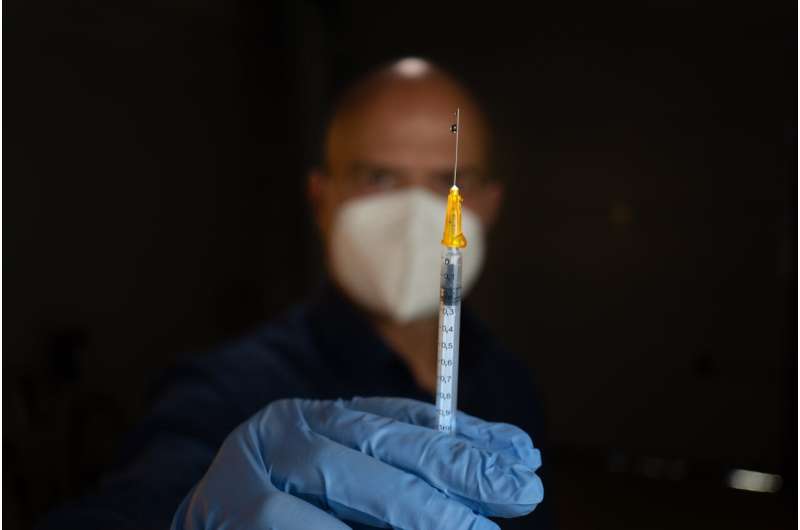
A study published in the Drug and Alcohol Review recommends a more tailored approach to improve vaccine uptake among people who inject drugs, following a survey showing around half were hesitant to receive the COVID-19 vaccine.
Burnet’s Professor Paul Dietze, director of Behaviours and Health Risks Program, was part of the research team that also included Olivia Price, Research Officer at the National Drug and Alcohol Research Centre—as well as researchers from the University of New South Wales, Curtin University, Monash University, Kirby Institute and the University of Tasmania.
The survey, conducted in June and July 2021 across all Australian capital cities as part of a national illicit drug monitoring system, included 884 participants—of which 10% had received at least one dose of the vaccine.
Those that were unvaccinated were asked “do you intend to get vaccinated for COVID-19?”
That comprised 22% who said “definitely not,” 13% who said “probably not” and 13% who indicated they were “not sure yet.”
Researchers then asked vaccine-hesitant participants about the reasoning for their hesitancy.
The study revealed the predominant barriers were concerns relating to vaccine safety (i.e. the vaccine has not been tested enough; 41%) and vaccine side effects (35%).
Less frequently cited barriers were perceived low risk of disease acquisition (17%) and disease severity (11%).
Researchers recommended targeted interventions to increase vaccine uptake among people who inject drugs, which included “the provision of vaccination in familiar settings, including needle-syringe programs, prisons, emergency departments and homeless shelters.”
However, the study said that given the “highly cited safety and side effect concerns, vaccine provision should be accompanied by information on the safety and utility of the COVID-19 vaccines available to build trust in COVID-19 vaccination.”
Researchers noted that it was important to recognize the surveys came before the third wave of cases in Australia, making it possible that vaccine intentions subsequently changed.
Burnet Institute

